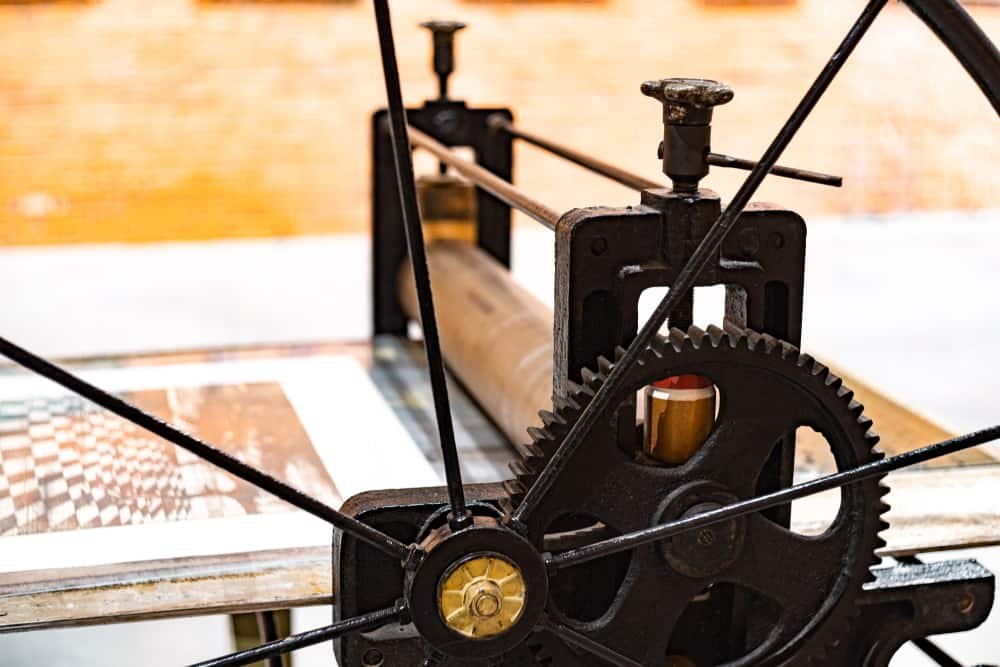Last Updated on January 7, 2024 by Gamesver Team and JC Franco

Playing the Game of Life is fun, but what is it really all about? I found myself thinking this just last weekend while battling it out over the board game with my niece and nephew. The Game of Life follows the cycle of life of an adult just going into or leaving college. The Life cards provide points for certain behaviors, and players have to make choices, life and moral, along the way.
While the game is fun, I couldn’t help but feel that there was more to it. Why did the inventor create it in this specific way? Why was it invented, and what purpose does it really serve? Let us find out.
The inventor of Game of Life, Milton Bradley, created the game in 1860 when the Civil War was raging throughout America. His aim was to create a game that offset the gloomy atmosphere that seemed to be enveloping the country at the time.
Bradley came up with the Game of Life in an attempt to include factual instruction and moral advice to the younger generation. And that is the original purpose of the Game of Life; to shine a spotlight on life’s choices and how a moral approach can be rewarding.
When I learned why Milton Bradley created the Game of Life, I had more questions. I wanted to know a bit more about Milton Bradley and what sort of morals he was trying to expose young people to in the game. I wanted to know more about his time era and if his moral approach was unique to him as an individual or if it was a product of the time that he lived in. Of course, as per usual, I began digging for the answers. If you would like to learn what I found out, read on.
The Checkered Game of Life – Why it was Invented with a Moral Element
By now, you already know that the Game of Life was invented by Milton Bradley, but what drove Milton to want to deliver moral life lessons to the youth of the nation? That’s the question that begs to be answered. Most people do not know this, but Milton Bradley lived in a time when games were considered trifling and sinful. He didn’t create the Game of Life on a whim, and in fact, by doing so, he was taking on a massive risk of failure and, of course, judgment from his peers and the general public.

In 1860 and the years that preceded it, the people of America were closely focused on politics and the recession. Milton, who had a lithographic press, found that it was sitting useless and not generating any income for him. He had started making money off a portrait of Abraham Lincoln that he had printed, but when Abraham grew his now-famous beard, his sales saw a steady decline, and his income generation ceased. Life was looking bleak and unpromising for Milton Bradley.
It is said that one evening, Bradley went to visit his friend, George Tapley, who spent the evening playing an old English board game with him in hopes of lifting his spirits. Simply playing the game and talking about it got Bradley thinking about how he could use his printing press to mass produce games and sell them. It immediately lifted his spirits, but this was America, and the people were potentially not ready for it.
The general population was steeped in a strong religious-based morality that was somewhat harsh on the people. Simply producing a game had the potential to fail. Worship was considered the number one priority, and any time not spent working or worshiping was to be spent seeking a “state of grace” To spend free time idly playing sinful games was certainly frowned on. Any use of dice for games was also considered sinful, as dice were used for gambling and, therefore, tools of the ‘devil’!
As such, Milton Bradley was taking a huge risk by thinking of mass-producing his game, but this didn’t stop him. He just needed to make sure that his game wasn’t considered sinful or trifling – and it seems he managed to do just that.
At the time, games were considered quite sinful and a waste of precious time. The only time games were deemed of any value was if they offered some sort of religious, educational, or social value. Because of this, Bradley thought he would create a game that focused quite heavily on morals (morals he felt strongly about too), and he hoped that the game would encourage people to look past the prejudice that had become the norm at the time.
Many have described Milton Bradley’s game as one with a focus on virtue vs. vice. When the game came out, it had a strong moral element that was undeniable. The version of the game that you encounter now is a far cry from the original.
What Morals are Emphasized in the Game of Life?

The very first version of the Game of Life was certainly not all sunshine and roses. It focused on the path of life of the average person.
Working through hardships while making the right choices.
The Game of Life was not about making millions, being famous, buying a car, having a big home, and living ‘happily’ ever after. Its approach, as well as the underlying message, was quite different, in fact.
The approach was far more realistic and focused on living a good life instead of giving in to all of your vices. Often, this meant that players had to suffer a variety of dire consequences such as suicide or bankruptcy. Some of these consequences meant that the game was over for you, while others were mere setbacks that could be overcome by making the right choices. That’s a strong moral element in the game; working towards success through the hardships.
Gambling.
While Milton Bradley had the ability to think over and above the oppressiveness of his time, he was still very much a product of his own day. He was a deeply virtuous and religious man and was rigid in what he believed to be right and wrong. He had a strong focus on education and living in the right way. This is the very reason why the Game of Life does not include a dice, but rather a spinning wheel.
At the time, dice were seen as the devil’s tools and part of the gambling world, and because of this, Bradley felt they had no place in his game. The game is also designed to reward moral or “good” behavior. One moral element that comes through quite strongly in the game is, thus, not to gamble.
Money.
The original game also did not include money which strongly brought about the moral element of not seeking out pure wealth in life, but rather aiming to have a happy and fulfilled life instead. The original version of the game relied on winners calculating points on squares.
Appropriate behavior.
Another strong moral element that comes through in the game is that of being rewarded by acting appropriately…or living life the “right way”. This meant that a victory was not claimed by earning money, but rather by living a good, virtuous life.
The additional squares such as suicide and bankruptcy were to keep the game realistic in that life throws curveballs, and you just have to deal with them. While the suicide square no longer exists in the game, it did in the original version. And if a player landed on the suicide square, they were eliminated from the game, just like suicide would eliminate you from life.
The Purpose of the Game of Life is Lost in Modern Versions of the Game

Unfortunately, the moral element that Milton Bradley was so keen to keep alive in his original game quickly started to fall away when he died in 1911. At this time, the Game of Life took a new turn, and modern versions started to base success and victory on wealth acquisition and eliminate most of the virtuous and moral elements.
Nowadays, the Game of Life is merely a form of escape and enjoyment for players, whereas, in the past, it served as an educational game that encouraged people to live a good and moral life. Unfortunately, the vision and purpose of the Game of Life that Milton Bradley had in mind have been lost in modern times.
Everything considered
When it comes to the purpose of the Game of Life, I think it is safe to say that the initial purpose was to teach people to live a moral life. While the new versions of the game focus on money, there is the underlying element of being rewarded for doing good things in life and having a moral approach.
I believe that the main purpose is to live a good life, and that purpose still comes through in all versions of the game, although far more watered down than it was in the 1860s.

